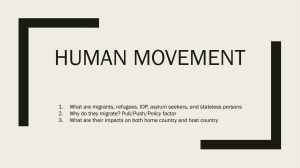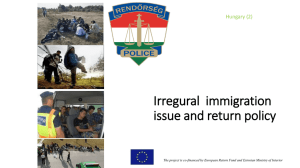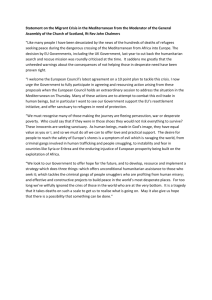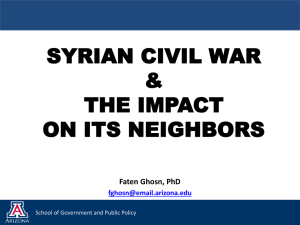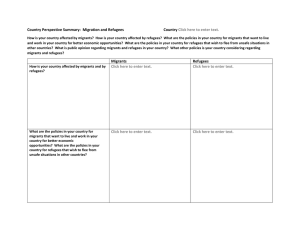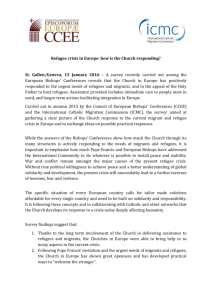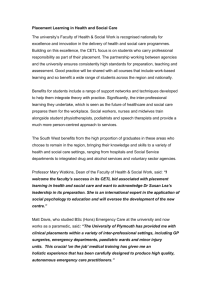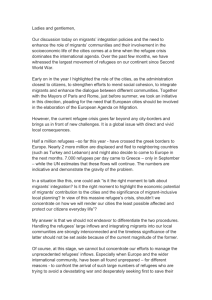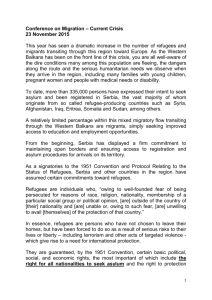This crisis has solution, this is ours
advertisement
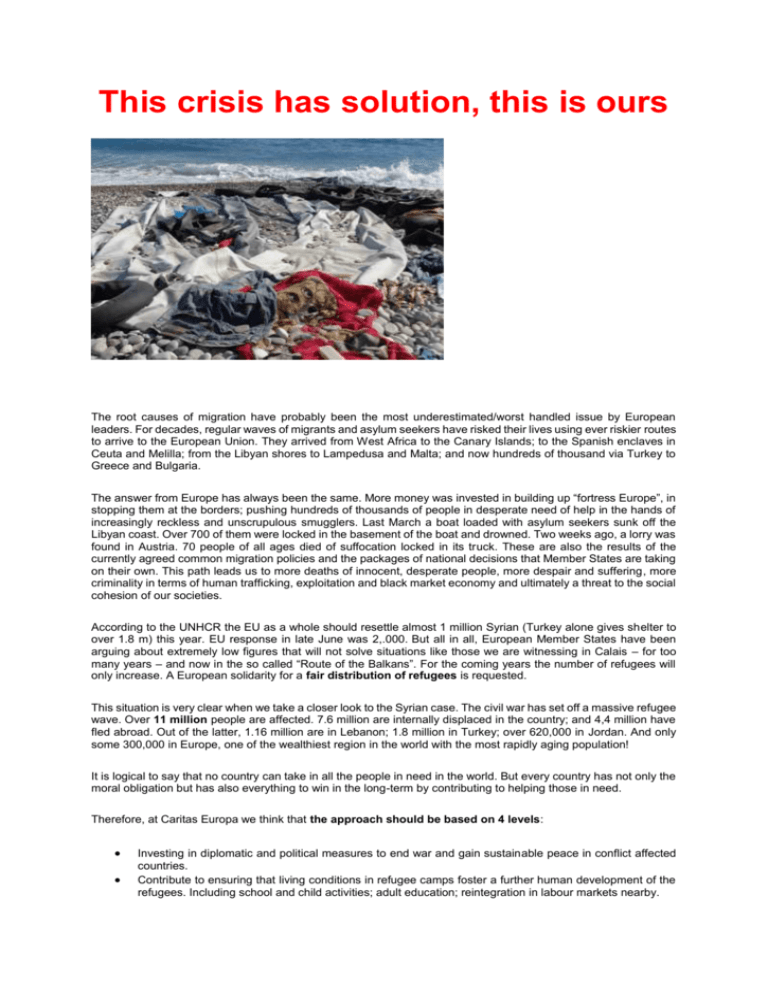
This crisis has solution, this is ours The root causes of migration have probably been the most underestimated/worst handled issue by European leaders. For decades, regular waves of migrants and asylum seekers have risked their lives using ever riskier routes to arrive to the European Union. They arrived from West Africa to the Canary Islands; to the Spanish enclaves in Ceuta and Melilla; from the Libyan shores to Lampedusa and Malta; and now hundreds of thousand via Turkey to Greece and Bulgaria. The answer from Europe has always been the same. More money was invested in building up “fortress Europe”, in stopping them at the borders; pushing hundreds of thousands of people in desperate need of help in the hands of increasingly reckless and unscrupulous smugglers. Last March a boat loaded with asylum seekers sunk off the Libyan coast. Over 700 of them were locked in the basement of the boat and drowned. Two weeks ago, a lorry was found in Austria. 70 people of all ages died of suffocation locked in its truck. These are also the results of the currently agreed common migration policies and the packages of national decisions that Member States are taking on their own. This path leads us to more deaths of innocent, desperate people, more despair and suffering, more criminality in terms of human trafficking, exploitation and black market economy and ultimately a threat to the social cohesion of our societies. According to the UNHCR the EU as a whole should resettle almost 1 million Syrian (Turkey alone gives shelter to over 1.8 m) this year. EU response in late June was 2,.000. But all in all, European Member States have been arguing about extremely low figures that will not solve situations like those we are witnessing in Calais – for too many years – and now in the so called “Route of the Balkans”. For the coming years the number of refugees will only increase. A European solidarity for a fair distribution of refugees is requested. This situation is very clear when we take a closer look to the Syrian case. The civil war has set off a massive refugee wave. Over 11 million people are affected. 7.6 million are internally displaced in the country; and 4,4 million have fled abroad. Out of the latter, 1.16 million are in Lebanon; 1.8 million in Turkey; over 620,000 in Jordan. And only some 300,000 in Europe, one of the wealthiest region in the world with the most rapidly aging population! It is logical to say that no country can take in all the people in need in the world. But every country has not only the moral obligation but has also everything to win in the long-term by contributing to helping those in need. Therefore, at Caritas Europa we think that the approach should be based on 4 levels: Investing in diplomatic and political measures to end war and gain sustainable peace in conflict affected countries. Contribute to ensuring that living conditions in refugee camps foster a further human development of the refugees. Including school and child activities; adult education; reintegration in labour markets nearby. Set up true safe and legal pathways to Europe, such as resettlement programmes that are adapted to the real needs (the recently agreed 22,000 places is too low a figure compared with the real need); family reunification and a recognition of the humanitarian visas and status across the European Union. Accompany resettlement with efficient integration policies that foster social integration via labour integration. Setting up a strategy around these 4 actions framed in a people centered approach that cares for the integral human development of everyone and wich acknowledges that means such as labour, economics and technology are to serve our common good, will hugely contribute to avoiding the tragic events that we have been witnessing for too many years. The economic resources to set up such a system do exist. Decision makers have the means, they just need the political will and courage to tackle and dismiss the loudly voices that are scapegoating migrants and refugees. These people are not threatening any national identity, Europe’s identity is not threatened by migrants and refugees, but by the danger of losing humanity as a core value of our culture and civilisation. We recognise ourselves in the recent words of Msgr. Lynch, Auxiliary Bishop for Southwark, about the situation in Calais “The crisis (…) challenges us all, both as Christians and as Europeans. We must face up to this reality at various levels.” We need to act together now and avoid more tragic death of people in desperate need of help and love.


